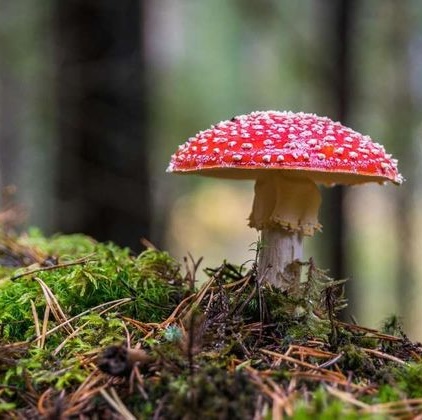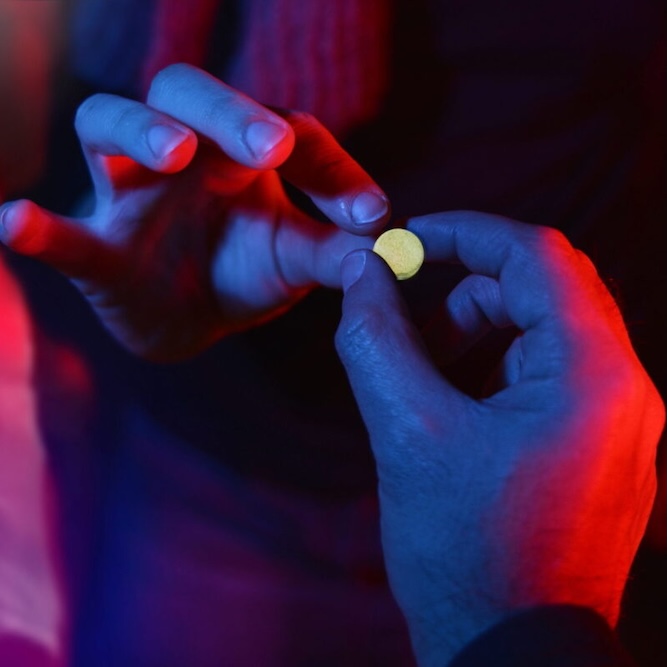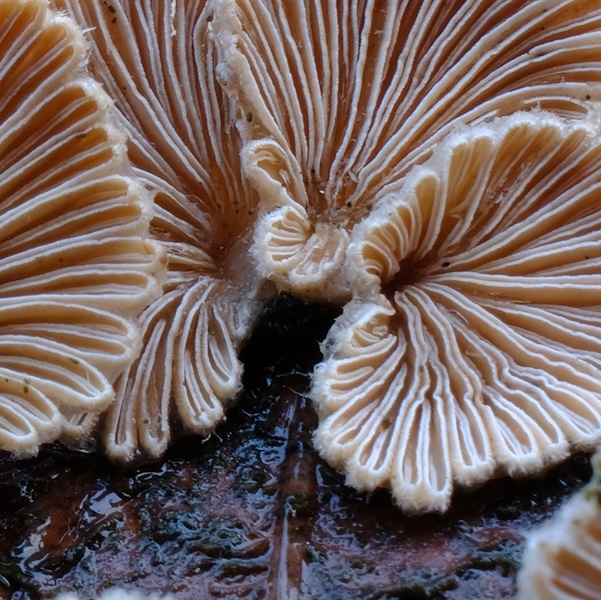If you’re asking yourself, “What is the best mushroom for depression?” you’re not alone. In recent years, there has been a significant shift towards exploring natural and alternative therapies for mental health, and psilocybin mushrooms have come to the forefront of this exploration. These natural fungi are being studied for their potential to alleviate symptoms of depression, offering hope to those who have not found relief through traditional methods. This article will delve into four unique mushrooms known for their therapeutic potentials: Hollandia, Pajaritos, Tampanesis, and Utopia truffles. By understanding the effects and benefits of each, we aim to provide insights into how these natural remedies could potentially transform the landscape of depression treatment.
Clarification on terminology
Throughout this article, we refer to “mushrooms” for simplicity. However, it’s important to note that the subjects discussed are technically truffles. We use these terms interchangeably to simplify the explanation, aiming to make the information accessible and understandable.
Understanding psilocybin mushrooms

Psilocybin mushrooms, often simply called magic mushrooms, contain psilocybin, a natural psychedelic compound that can induce profound changes in perception, mood, and thought. While often associated with recreational use, recent scientific research has been uncovering their potential therapeutic benefits, particularly in treating mental health disorders such as depression.
How psilocybin affects the brain
When ingested, psilocybin is converted into psilocin, which influences serotonin receptors in the brain. This interaction is believed to result in a decrease in the brain activity that typically corresponds to depressive symptoms. Moreover, psilocybin has been shown to increase the connectivity across different regions of the brain, which can disrupt negative thought patterns and provide new perspectives for those suffering from depression.
Recent clinical trials have shown promising results, with many participants experiencing significant improvements in their symptoms after just one or two sessions under controlled conditions. These studies suggest that psilocybin not only provides immediate relief but may also have lasting effects, making it a potentially revolutionary treatment for depression.
The role of psilocybin mushrooms for depression
Psilocybin and the brain
At the heart of psilocybin therapy for depression is its ability to act on serotonin receptors, specifically the 5-HT2A receptor, which plays a crucial role in regulating mood, anxiety, and thought processes. By activating these receptors, psilocybin induces a series of brain activities collectively known as the “psychedelic experience,” which can lead to profound shifts in consciousness and emotional breakthroughs.
Clinical studies and results
Numerous clinical trials have pointed to psilocybin’s effectiveness in reducing symptoms of depression, often with long-lasting effects after just a single dose. Studies conducted by leading psychiatric research institutions have shown that psilocybin therapy can lead to significant decreases in depression and anxiety levels in patients who have not responded to traditional antidepressants. Notably, research has highlighted the ability of psilocybin to ‘reset’ brain activity patterns associated with depressive states, providing new insights and perspectives that persist well beyond the initial effects of the drug.
Therapeutic mechanisms
One of the most compelling aspects of psilocybin treatment for depression is its ability to foster a sense of connectedness and openness. Patients often report feeling more open to their emotions and experiences, a factor that can lead to significant improvements in psychotherapeutic settings. Furthermore, psilocybin has been shown to decrease the activity of the default mode network (DMN), a part of the brain often overactive in people with depression, which is associated with self-focused thoughts and rumination.
Safety and side effects
While psilocybin is generally considered safe when administered under clinical supervision, it does come with potential side effects such as sensory distortion, confusion, and emotional upheaval during the experience. Long-term negative effects are rare when psilocybin is used responsibly, but it is crucial that treatments are conducted in a controlled, therapeutic setting with appropriate psychological support.
Regulatory movement
In recognition of these benefits, some regions have begun to change their stance on psilocybin. For instance, several U.S. cities have decriminalized the possession of psilocybin mushrooms, and there are ongoing discussions about legalizing them for therapeutic use, reflecting a significant shift in how these natural compounds are viewed in the context of mental health treatment.
By understanding the profound impact psilocybin can have on the brain and its potential to revolutionize depression treatment, we can appreciate why it is becoming a key topic in discussions about alternative mental health therapies. The promise of psilocybin as an effective treatment lies not just in its capacity to alleviate symptoms but also in its ability to address some of the underlying processes that contribute to depression, offering hope for a more profound and lasting recovery.
Detailed overview of selected mushrooms
In the quest to answer the question, “What is the best mushroom for depression?” we explore six specific types of psilocybin-containing mushrooms, each offering unique benefits and experiences. This detailed overview will help differentiate how each mushroom might serve individuals struggling with depression.
Hollandia mushroom
Known for its potency, the Hollandia mushroom offers a powerful psychedelic experience that can lead to significant introspective insights. Users often report profound shifts in perception and mood, which can be particularly beneficial for those seeking deep therapeutic breakthroughs. The effects include enhanced visual and auditory perceptions and a profound sense of connectedness with the world around them. Hollandia mushrooms are particularly suited for experienced users due to their strength.
Pajaritos mushroom
Pajaritos, which means “little birds” in Spanish, are known for their gentler effects, making them suitable for beginners or those looking for a milder introduction to psilocybin therapy. Users typically experience an increase in emotional openness and euphoria, alongside mild visual enhancements. This mushroom is recommended for those who may feel apprehensive about the intensity of other strains.
Tampanensis mushroom
Also known as the “Philosopher’s Stone,” Tampanensis mushrooms are revered for their balanced effects, which provide a thoughtful, reflective experience. Users often engage in deep philosophical thoughts or creative bursts, making it a good option for those looking to explore their inner selves while maintaining a sense of grounding. It’s a versatile mushroom that suits both new and experienced users.
Utopia mushroom
Utopia mushrooms are for those seeking an intensely transformative experience. They are known for producing strong visual and sensory distortions, which can lead to powerful emotional releases and self-discovery. This variety is recommended for individuals looking for significant psychological exploration and is best used under the guidance of a therapist or an experienced sitter.
Atlantis mushroom
Atlantis mushrooms are praised for their capacity to induce euphoric states and deep emotional introspection. They are particularly effective for those seeking to uncover hidden emotional issues and foster a sense of inner peace. The Atlantis mushroom is often used in therapeutic settings to facilitate breakthroughs in emotional healing and self-awareness, making it a strong candidate for treating depression.
Galindoi mushroom
Galindoi mushrooms are known for their unique balance of visual and cognitive effects. They provide a clear-headed experience with significant visual enhancements, making them suitable for users who wish to maintain a level of mental clarity while exploring their inner landscapes. Galindoi mushrooms are beneficial for therapeutic sessions focused on both emotional and cognitive aspects of depression.
Comparative analysis
When considering which mushroom might be the best for treating depression, it’s crucial to understand the specific needs and experiences of the individual. While Hollandia and Utopia provide intense experiences that can catalyze significant change, Pajaritos and Tampanensis offer more gentle and reflective journeys. Atlantis mushrooms are excellent for emotional introspection, and Galindoi mushrooms offer a balanced experience with clear-headed introspection. Each type has the potential to foster healing and growth, depending on the user’s personal circumstances and therapeutic goals.

Comparing best mushrooms for depression treatment
When evaluating “what is the best mushroom for depression,” it’s important to consider the unique effects and potential therapeutic benefits of each type. This comparative analysis aims to guide those considering psilocybin as a treatment option for depression, providing insights into which mushroom might best meet their needs.
Efficacy in symptom relief:
- Hollandia mushroom: Known for its strong euphoric effects, Hollandia is often recommended for those who have resistant forms of depression, as it can provoke profound emotional and perceptual changes.
- Pajaritos mushroom: With its milder effects, Pajaritos can be ideal for easing into psychedelic therapy, providing relief without overwhelming the user, making it suitable for those with mild to moderate depression.
- Tampanensis mushroom: Often chosen for its balanced nature, Tampanesis can stimulate deep introspection and philosophical thinking, beneficial for those seeking to understand the roots of their depression.
- Utopia mushroom: Offering one of the most intense experiences, Utopia can be effective in cases where conventional treatments have failed, potentially resetting entrenched negative thought patterns.
- Atlantis mushroom: Praised for its capacity to induce euphoric states and deep emotional introspection, Atlantis mushrooms are effective for those seeking to uncover hidden emotional issues and foster a sense of inner peace, making them suitable for treating various forms of depression.
- Galindoi mushroom: Known for their unique balance of visual and cognitive effects, Galindoi mushrooms provide a clear-headed experience with significant visual enhancements. This makes them beneficial for users who wish to maintain mental clarity while exploring their inner landscapes, suitable for therapeutic sessions focused on both emotional and cognitive aspects of depression.
User experiences and preferences:
Feedback from users indicates varying preferences depending on their personal experiences with depression and their comfort with psychedelic effects:
- New users or those apprehensive about intense experiences tend to prefer Pajaritos or Tampanesis.
- Experienced users or those seeking significant psychological breakthroughs are more likely to choose Hollandia or Utopia.
Therapeutic context and support:
- The setting and support system play crucial roles in the effectiveness of these treatments. Users report better outcomes when sessions are guided by therapists or experienced sitters, especially with the more potent varieties like Hollandia and Utopia.
- Proper preparation and integration sessions post-experience are also highlighted as key factors in achieving lasting benefits from any psychedelic therapy.
Safety and side effects:
- While all varieties are generally considered safe under controlled conditions, the intensity of experiences with Utopia and Hollandia requires careful consideration of the user’s mental health history and current psychological state.
- Pajaritos and Tampanesis, offering gentler effects, are often recommended for those with concerns about the potential overwhelming nature of psychedelic experiences.
Conclusion of comparison:
Each mushroom has its unique properties and potential benefits. The choice of which mushroom might be the best for depression largely depends on the individual’s specific symptoms, previous experiences with psychedelics, and personal comfort levels. It is essential for potential users to consult with healthcare professionals and consider all factors, including their mental health history and the setting in which they plan to use these substances.
Safe usage of psilocybin mushrooms
As we explore the potential benefits of psilocybin mushrooms for depression, it is crucial to discuss how to use these substances safely. The set and setting, dosage, and presence of a supportive guide or therapist are vital components to ensure a positive and healing experience.
Set and setting:
- Set refers to the mindset of an individual entering a psychedelic experience. It is important for users to approach the experience with a clear intention and an open mind.
- Setting refers to the environment in which the experience takes place. A calm, comfortable, and safe environment is crucial. This might be a professional therapeutic setting or a quiet, familiar space at home.
Guidance and support:
- Having a trained therapist or a knowledgeable sitter during the session can greatly enhance the safety and effectiveness of the experience. They can provide emotional support and ensure that the user navigates the experience safely.
Dosage and preparation:
- Dosage should be carefully considered. Lower doses might be recommended for beginners or those with mild depression, while higher doses might be considered for more experienced users under professional supervision.
- Proper preparation involves not only physical readiness but also mental preparation, discussing expectations, and planning for the integration of the experience into one’s life.
Integration:
- Integration is the process of making sense of the experience and incorporating the insights gained into daily life. This can be facilitated by follow-up sessions with a therapist who can help interpret the experience and advice on applying the insights in a practical and healthy way.
Legal and health considerations:
- It is essential to be aware of the legal status of psilocybin mushrooms in your location as this varies by country and, in some cases, by region within a country.
- Individuals should consider their mental health history, as psilocybin is not suitable for everyone, particularly those with a history of psychosis or severe mental health disorders.
Conclusion
In conclusion, when considering “what is the best mushroom for depression,” it is essential to take into account the individual’s specific needs, the potential risks, and the therapeutic possibilities of each mushroom type. While psilocybin mushrooms offer significant promise in treating depression, they must be used responsibly and with appropriate preparation and support. We hope this guide has provided a comprehensive overview of how these mushrooms can be used safely and effectively as part of a broader treatment plan.




